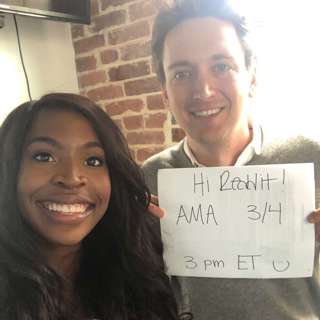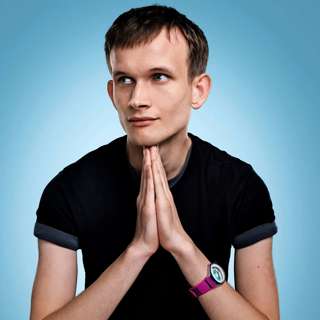
#194 – Vitalik Buterin on defensive acceleration and how to regulate AI when you fear government
"If you’re a power that is an island and that goes by sea, then you’re more likely to do things like valuing freedom, being democratic, being pro-foreigner, being open-minded, being interested in trade. If you are on the Mongolian steppes, then your entire mindset is kill or be killed, conquer or be conquered … the breeding ground for basically everything that all of us consider to be dystopian governance. If you want more utopian governance and less dystopian governance, then find ways to basically change the landscape, to try to make the world look more like mountains and rivers and less like the Mongolian steppes." —Vitalik ButerinCan ‘effective accelerationists’ and AI ‘doomers’ agree on a common philosophy of technology? Common sense says no. But programmer and Ethereum cofounder Vitalik Buterin showed otherwise with his essay “My techno-optimism,” which both camps agreed was basically reasonable.Links to learn more, highlights, video, and full transcript.Seeing his social circle divided and fighting, Vitalik hoped to write a careful synthesis of the best ideas from both the optimists and the apprehensive.Accelerationists are right: most technologies leave us better off, the human cost of delaying further advances can be dreadful, and centralising control in government hands often ends disastrously.But the fearful are also right: some technologies are important exceptions, AGI has an unusually high chance of being one of those, and there are options to advance AI in safer directions.The upshot? Defensive acceleration: humanity should run boldly but also intelligently into the future — speeding up technology to get its benefits, but preferentially developing ‘defensive’ technologies that lower systemic risks, permit safe decentralisation of power, and help both individuals and countries defend themselves against aggression and domination.Entrepreneur First is running a defensive acceleration incubation programme with $250,000 of investment. If these ideas resonate with you, learn about the programme and apply by August 2, 2024. You don’t need a business idea yet — just the hustle to start a technology company.In addition to all of that, host Rob Wiblin and Vitalik discuss:AI regulation disagreements being less about AI in particular, and more whether you’re typically more scared of anarchy or totalitarianism.Vitalik’s updated p(doom).Whether the social impact of blockchain and crypto has been a disappointment.Whether humans can merge with AI, and if that’s even desirable.The most valuable defensive technologies to accelerate.How to trustlessly identify what everyone will agree is misinformationWhether AGI is offence-dominant or defence-dominant.Vitalik’s updated take on effective altruism.Plenty more.Chapters:Cold open (00:00:00)Rob’s intro (00:00:56)The interview begins (00:04:47)Three different views on technology (00:05:46)Vitalik’s updated probability of doom (00:09:25)Technology is amazing, and AI is fundamentally different from other tech (00:15:55)Fear of totalitarianism and finding middle ground (00:22:44)Should AI be more centralised or more decentralised? (00:42:20)Humans merging with AIs to remain relevant (01:06:59)Vitalik’s “d/acc” alternative (01:18:48)Biodefence (01:24:01)Pushback on Vitalik’s vision (01:37:09)How much do people actually disagree? (01:42:14)Cybersecurity (01:47:28)Information defence (02:01:44)Is AI more offence-dominant or defence-dominant? (02:21:00)How Vitalik communicates among different camps (02:25:44)Blockchain applications with social impact (02:34:37)Rob’s outro (03:01:00)Producer and editor: Keiran HarrisAudio engineering team: Ben Cordell, Simon Monsour, Milo McGuire, and Dominic ArmstrongTranscriptions: Katy Moore
26 Heinä 20243h 4min

#193 – Sihao Huang on navigating the geopolitics of US–China AI competition
"You don’t necessarily need world-leading compute to create highly risky AI systems. The biggest biological design tools right now, like AlphaFold’s, are orders of magnitude smaller in terms of compute requirements than the frontier large language models. And China has the compute to train these systems. And if you’re, for instance, building a cyber agent or something that conducts cyberattacks, perhaps you also don’t need the general reasoning or mathematical ability of a large language model. You train on a much smaller subset of data. You fine-tune it on a smaller subset of data. And those systems — one, if China intentionally misuses them, and two, if they get proliferated because China just releases them as open source, or China does not have as comprehensive AI regulations — this could cause a lot of harm in the world." —Sihao HuangIn today’s episode, host Luisa Rodriguez speaks to Sihao Huang about his work on AI governance and tech policy in China, what’s happening on the ground in China in AI development and regulation, and the importance of US–China cooperation on AI governance.Links to learn more, highlights, video, and full transcript.They cover:Whether the US and China are in an AI race, and the global implications if they are.The state of the art of AI in China.China’s response to American export controls, and whether China is on track to indigenise its semiconductor supply chain.How China’s current AI regulations try to maintain a delicate balance between fostering innovation and keeping strict information control over the Chinese people.Whether China’s extensive AI regulations signal real commitment to safety or just censorship — and how AI is already used in China for surveillance and authoritarian control.How advancements in AI could reshape global power dynamics, and Sihao’s vision of international cooperation to manage this responsibly.And plenty more.Chapters:Cold open (00:00:00)Luisa's intro (00:01:02)The interview begins (00:02:06)Is China in an AI race with the West? (00:03:20)How advanced is Chinese AI? (00:15:21)Bottlenecks in Chinese AI development (00:22:30)China and AI risks (00:27:41)Information control and censorship (00:31:32)AI safety research in China (00:36:31)Could China be a source of catastrophic AI risk? (00:41:58)AI enabling human rights abuses and undermining democracy (00:50:10)China’s semiconductor industry (00:59:47)China’s domestic AI governance landscape (01:29:22)China’s international AI governance strategy (01:49:56)Coordination (01:53:56)Track two dialogues (02:03:04)Misunderstandings Western actors have about Chinese approaches (02:07:34)Complexity thinking (02:14:40)Sihao’s pet bacteria hobby (02:20:34)Luisa's outro (02:22:47)Producer and editor: Keiran HarrisAudio engineering team: Ben Cordell, Simon Monsour, Milo McGuire, and Dominic ArmstrongAdditional content editing: Katy Moore and Luisa RodriguezTranscriptions: Katy Moore
18 Heinä 20242h 23min
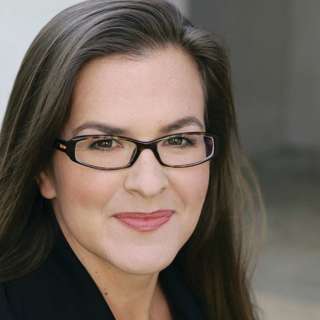
#192 – Annie Jacobsen on what would happen if North Korea launched a nuclear weapon at the US
"Ring one: total annihilation; no cellular life remains. Ring two, another three-mile diameter out: everything is ablaze. Ring three, another three or five miles out on every side: third-degree burns among almost everyone. You are talking about people who may have gone down into the secret tunnels beneath Washington, DC, escaped from the Capitol and such: people are now broiling to death; people are dying from carbon monoxide poisoning; people who followed instructions and went into their basement are dying of suffocation. Everywhere there is death, everywhere there is fire."That iconic mushroom stem and cap that represents a nuclear blast — when a nuclear weapon has been exploded on a city — that stem and cap is made up of people. What is left over of people and of human civilisation." —Annie JacobsenIn today’s episode, host Luisa Rodriguez speaks to Pulitzer Prize finalist and New York Times bestselling author Annie Jacobsen about her latest book, Nuclear War: A Scenario.Links to learn more, highlights, and full transcript.They cover:The most harrowing findings from Annie’s hundreds of hours of interviews with nuclear experts.What happens during the window that the US president would have to decide about nuclear retaliation after hearing news of a possible nuclear attack.The horrific humanitarian impacts on millions of innocent civilians from nuclear strikes.The overlooked dangers of a nuclear-triggered electromagnetic pulse (EMP) attack crippling critical infrastructure within seconds.How we’re on the razor’s edge between the logic of nuclear deterrence and catastrophe, and urgently need reforms to move away from hair-trigger alert nuclear postures.And plenty more.Chapters:Cold open (00:00:00)Luisa’s intro (00:01:03)The interview begins (00:02:28)The first 24 minutes (00:02:59)The Black Book and presidential advisors (00:13:35)False alarms (00:40:43)Russian misperception of US counterattack (00:44:50)A narcissistic madman with a nuclear arsenal (01:00:13)Is escalation inevitable? (01:02:53)Firestorms and rings of annihilation (01:12:56)Nuclear electromagnetic pulses (01:27:34)Continuity of government (01:36:35)Rays of hope (01:41:07)Where we’re headed (01:43:52)Avoiding politics (01:50:34)Luisa’s outro (01:52:29)Producer and editor: Keiran HarrisAudio engineering team: Ben Cordell, Simon Monsour, Milo McGuire, and Dominic ArmstrongAdditional content editing: Katy Moore and Luisa RodriguezTranscriptions: Katy Moore
12 Heinä 20241h 54min

#191 (Part 2) – Carl Shulman on government and society after AGI
This is the second part of our marathon interview with Carl Shulman. The first episode is on the economy and national security after AGI. You can listen to them in either order!If we develop artificial general intelligence that's reasonably aligned with human goals, it could put a fast and near-free superhuman advisor in everyone's pocket. How would that affect culture, government, and our ability to act sensibly and coordinate together?It's common to worry that AI advances will lead to a proliferation of misinformation and further disconnect us from reality. But in today's conversation, AI expert Carl Shulman argues that this underrates the powerful positive applications the technology could have in the public sphere.Links to learn more, highlights, and full transcript.As Carl explains, today the most important questions we face as a society remain in the "realm of subjective judgement" -- without any "robust, well-founded scientific consensus on how to answer them." But if AI 'evals' and interpretability advance to the point that it's possible to demonstrate which AI models have truly superhuman judgement and give consistently trustworthy advice, society could converge on firm or 'best-guess' answers to far more cases.If the answers are publicly visible and confirmable by all, the pressure on officials to act on that advice could be great. That's because when it's hard to assess if a line has been crossed or not, we usually give people much more discretion. For instance, a journalist inventing an interview that never happened will get fired because it's an unambiguous violation of honesty norms — but so long as there's no universally agreed-upon standard for selective reporting, that same journalist will have substantial discretion to report information that favours their preferred view more often than that which contradicts it.Similarly, today we have no generally agreed-upon way to tell when a decision-maker has behaved irresponsibly. But if experience clearly shows that following AI advice is the wise move, not seeking or ignoring such advice could become more like crossing a red line — less like making an understandable mistake and more like fabricating your balance sheet.To illustrate the possible impact, Carl imagines how the COVID pandemic could have played out in the presence of AI advisors that everyone agrees are exceedingly insightful and reliable. But in practice, a significantly superhuman AI might suggest novel approaches better than any we can suggest.In the past we've usually found it easier to predict how hard technologies like planes or factories will change than to imagine the social shifts that those technologies will create — and the same is likely happening for AI.Carl Shulman and host Rob Wiblin discuss the above, as well as:The risk of society using AI to lock in its values.The difficulty of preventing coups once AI is key to the military and police.What international treaties we need to make this go well.How to make AI superhuman at forecasting the future.Whether AI will be able to help us with intractable philosophical questions.Whether we need dedicated projects to make wise AI advisors, or if it will happen automatically as models scale.Why Carl doesn't support AI companies voluntarily pausing AI research, but sees a stronger case for binding international controls once we're closer to 'crunch time.'Opportunities for listeners to contribute to making the future go well.Chapters:Cold open (00:00:00)Rob’s intro (00:01:16)The interview begins (00:03:24)COVID-19 concrete example (00:11:18)Sceptical arguments against the effect of AI advisors (00:24:16)Value lock-in (00:33:59)How democracies avoid coups (00:48:08)Where AI could most easily help (01:00:25)AI forecasting (01:04:30)Application to the most challenging topics (01:24:03)How to make it happen (01:37:50)International negotiations and coordination and auditing (01:43:54)Opportunities for listeners (02:00:09)Why Carl doesn't support enforced pauses on AI research (02:03:58)How Carl is feeling about the future (02:15:47)Rob’s outro (02:17:37)Producer and editor: Keiran HarrisAudio engineering team: Ben Cordell, Simon Monsour, Milo McGuire, and Dominic ArmstrongTranscriptions: Katy Moore
5 Heinä 20242h 20min

#191 (Part 1) – Carl Shulman on the economy and national security after AGI
This is the first part of our marathon interview with Carl Shulman. The second episode is on government and society after AGI. You can listen to them in either order!The human brain does what it does with a shockingly low energy supply: just 20 watts — a fraction of a cent worth of electricity per hour. What would happen if AI technology merely matched what evolution has already managed, and could accomplish the work of top human professionals given a 20-watt power supply?Many people sort of consider that hypothetical, but maybe nobody has followed through and considered all the implications as much as Carl Shulman. Behind the scenes, his work has greatly influenced how leaders in artificial general intelligence (AGI) picture the world they're creating.Links to learn more, highlights, and full transcript.Carl simply follows the logic to its natural conclusion. This is a world where 1 cent of electricity can be turned into medical advice, company management, or scientific research that would today cost $100s, resulting in a scramble to manufacture chips and apply them to the most lucrative forms of intellectual labour.It's a world where, given their incredible hourly salaries, the supply of outstanding AI researchers quickly goes from 10,000 to 10 million or more, enormously accelerating progress in the field.It's a world where companies operated entirely by AIs working together are much faster and more cost-effective than those that lean on humans for decision making, and the latter are progressively driven out of business. It's a world where the technical challenges around control of robots are rapidly overcome, leading to robots into strong, fast, precise, and tireless workers able to accomplish any physical work the economy requires, and a rush to build billions of them and cash in.As the economy grows, each person could effectively afford the practical equivalent of a team of hundreds of machine 'people' to help them with every aspect of their lives.And with growth rates this high, it doesn't take long to run up against Earth's physical limits — in this case, the toughest to engineer your way out of is the Earth's ability to release waste heat. If this machine economy and its insatiable demand for power generates more heat than the Earth radiates into space, then it will rapidly heat up and become uninhabitable for humans and other animals.This creates pressure to move economic activity off-planet. So you could develop effective populations of billions of scientific researchers operating on computer chips orbiting in space, sending the results of their work, such as drug designs, back to Earth for use.These are just some of the wild implications that could follow naturally from truly embracing the hypothetical: what if we develop AGI that could accomplish everything that the most productive humans can, using the same energy supply?In today's episode, Carl explains the above, and then host Rob Wiblin pushes back on whether that’s realistic or just a cool story, asking:If we're heading towards the above, how come economic growth is slow now and not really increasing?Why have computers and computer chips had so little effect on economic productivity so far?Are self-replicating biological systems a good comparison for self-replicating machine systems?Isn't this just too crazy and weird to be plausible?What bottlenecks would be encountered in supplying energy and natural resources to this growing economy?Might there not be severely declining returns to bigger brains and more training?Wouldn't humanity get scared and pull the brakes if such a transformation kicked off?If this is right, how come economists don't agree?Finally, Carl addresses the moral status of machine minds themselves. Would they be conscious or otherwise have a claim to moral or rights? And how might humans and machines coexist with neither side dominating or exploiting the other?Chapters:Cold open (00:00:00)Rob’s intro (00:01:00)Transitioning to a world where AI systems do almost all the work (00:05:21)Economics after an AI explosion (00:14:25)Objection: Shouldn’t we be seeing economic growth rates increasing today? (00:59:12)Objection: Speed of doubling time (01:07:33)Objection: Declining returns to increases in intelligence? (01:11:59)Objection: Physical transformation of the environment (01:17:39)Objection: Should we expect an increased demand for safety and security? (01:29:14)Objection: “This sounds completely whack” (01:36:10)Income and wealth distribution (01:48:02)Economists and the intelligence explosion (02:13:31)Baumol effect arguments (02:19:12)Denying that robots can exist (02:27:18)Classic economic growth models (02:36:12)Robot nannies (02:48:27)Slow integration of decision-making and authority power (02:57:39)Economists’ mistaken heuristics (03:01:07)Moral status of AIs (03:11:45)Rob’s outro (04:11:47)Producer and editor: Keiran HarrisAudio engineering lead: Ben CordellTechnical editing: Simon Monsour, Milo McGuire, and Dominic ArmstrongTranscriptions: Katy Moore
27 Kesä 20244h 14min
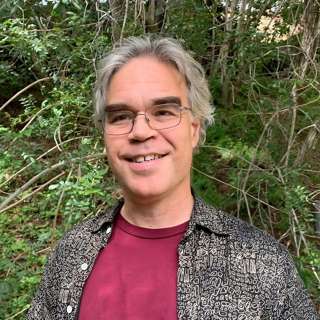
#190 – Eric Schwitzgebel on whether the US is conscious
"One of the most amazing things about planet Earth is that there are complex bags of mostly water — you and me – and we can look up at the stars, and look into our brains, and try to grapple with the most complex, difficult questions that there are. And even if we can’t make great progress on them and don’t come to completely satisfying solutions, just the fact of trying to grapple with these things is kind of the universe looking at itself and trying to understand itself. So we’re kind of this bright spot of reflectiveness in the cosmos, and I think we should celebrate that fact for its own intrinsic value and interestingness." —Eric SchwitzgebelIn today’s episode, host Luisa Rodriguez speaks to Eric Schwitzgebel — professor of philosophy at UC Riverside — about some of the most bizarre and unintuitive claims from his recent book, The Weirdness of the World.Links to learn more, highlights, and full transcript.They cover:Why our intuitions seem so unreliable for answering fundamental questions about reality.What the materialist view of consciousness is, and how it might imply some very weird things — like that the United States could be a conscious entity.Thought experiments that challenge our intuitions — like supersquids that think and act through detachable tentacles, and intelligent species whose brains are made up of a million bugs.Eric’s claim that consciousness and cosmology are universally bizarre and dubious.How to think about borderline states of consciousness, and whether consciousness is more like a spectrum or more like a light flicking on.The nontrivial possibility that we could be dreaming right now, and the ethical implications if that’s true.Why it’s worth it to grapple with the universe’s most complex questions, even if we can’t find completely satisfying solutions.And much more.Chapters:Cold open |00:00:00|Luisa’s intro |00:01:10|Bizarre and dubious philosophical theories |00:03:13|The materialist view of consciousness |00:13:55|What would it mean for the US to be conscious? |00:19:46|Supersquids and antheads thought experiments |00:22:37|Alternatives to the materialist perspective |00:35:19|Are our intuitions useless for thinking about these things? |00:42:55|Key ingredients for consciousness |00:46:46|Reasons to think the US isn’t conscious |01:01:15|Overlapping consciousnesses [01:09:32]Borderline cases of consciousness |01:13:22|Are we dreaming right now? |01:40:29|Will we ever have answers to these dubious and bizarre questions? |01:56:16|Producer and editor: Keiran HarrisAudio engineering lead: Ben CordellTechnical editing: Simon Monsour, Milo McGuire, and Dominic ArmstrongAdditional content editing: Katy Moore and Luisa RodriguezTranscriptions: Katy Moore
7 Kesä 20242h

#189 – Rachel Glennerster on why we still don’t have vaccines that could save millions
"You can’t charge what something is worth during a pandemic. So we estimated that the value of one course of COVID vaccine in January 2021 was over $5,000. They were selling for between $6 and $40. So nothing like their social value. Now, don’t get me wrong. I don’t think that they should have charged $5,000 or $6,000. That’s not ethical. It’s also not economically efficient, because they didn’t cost $5,000 at the marginal cost. So you actually want low price, getting out to lots of people."But it shows you that the market is not going to reward people who do the investment in preparation for a pandemic — because when a pandemic hits, they’re not going to get the reward in line with the social value. They may even have to charge less than they would in a non-pandemic time. So prepping for a pandemic is not an efficient market strategy if I’m a firm, but it’s a very efficient strategy for society, and so we’ve got to bridge that gap." —Rachel GlennersterIn today’s episode, host Luisa Rodriguez speaks to Rachel Glennerster — associate professor of economics at the University of Chicago and a pioneer in the field of development economics — about how her team’s new Market Shaping Accelerator aims to leverage market forces to drive innovations that can solve pressing world problems.Links to learn more, highlights, and full transcript.They cover:How market failures and misaligned incentives stifle critical innovations for social goods like pandemic preparedness, climate change interventions, and vaccine development.How “pull mechanisms” like advance market commitments (AMCs) can help overcome these challenges — including concrete examples like how one AMC led to speeding up the development of three vaccines which saved around 700,000 lives in low-income countries.The challenges in designing effective pull mechanisms, from design to implementation.Why it’s important to tie innovation incentives to real-world impact and uptake, not just the invention of a new technology.The massive benefits of accelerating vaccine development, in some cases, even if it’s only by a few days or weeks.The case for a $6 billion advance market commitment to spur work on a universal COVID-19 vaccine.The shortlist of ideas from the Market Shaping Accelerator’s recent Innovation Challenge that use pull mechanisms to address market failures around improving indoor air quality, repurposing generic drugs for alternative uses, and developing eco-friendly air conditioners for a warming planet.“Best Buys” and “Bad Buys” for improving education systems in low- and middle-income countries, based on evidence from over 400 studies.Lessons from Rachel’s career at the forefront of global development, and how insights from economics can drive transformative change.And much more.Chapters:The Market Shaping Accelerator (00:03:33)Pull mechanisms for innovation (00:13:10)Accelerating the pneumococcal and COVID vaccines (00:19:05)Advance market commitments (00:41:46)Is this uncertainty hard for funders to plan around? (00:49:17)The story of the malaria vaccine that wasn’t (00:57:15)Challenges with designing and implementing AMCs and other pull mechanisms (01:01:40)Universal COVID vaccine (01:18:14)Climate-resilient crops (01:34:09)The Market Shaping Accelerator’s Innovation Challenge (01:45:40)Indoor air quality to reduce respiratory infections (01:49:09)Repurposing generic drugs (01:55:50)Clean air conditioning units (02:02:41)Broad-spectrum antivirals for pandemic prevention (02:09:11)Improving education in low- and middle-income countries (02:15:53)What’s still weird for Rachel about living in the US? (02:45:06)Producer and editor: Keiran HarrisAudio Engineering Lead: Ben CordellTechnical editing: Simon Monsour, Milo McGuire, and Dominic ArmstrongAdditional content editing: Katy Moore and Luisa RodriguezTranscriptions: Katy Moore
29 Touko 20242h 48min
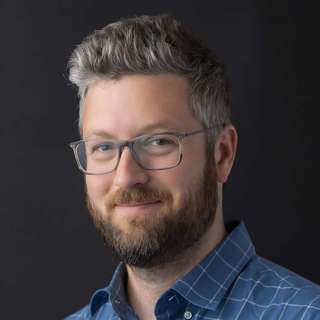
#188 – Matt Clancy on whether science is good
"Suppose we make these grants, we do some of those experiments I talk about. We discover, for example — I’m just making this up — but we give people superforecasting tests when they’re doing peer review, and we find that you can identify people who are super good at picking science. And then we have this much better targeted science, and we’re making progress at a 10% faster rate than we normally would have. Over time, that aggregates up, and maybe after 10 years, we’re a year ahead of where we would have been if we hadn’t done this kind of stuff."Now, suppose in 10 years we’re going to discover a cheap new genetic engineering technology that anyone can use in the world if they order the right parts off of Amazon. That could be great, but could also allow bad actors to genetically engineer pandemics and basically try to do terrible things with this technology. And if we’ve brought that forward, and that happens at year nine instead of year 10 because of some of these interventions we did, now we start to think that if that’s really bad, if these people using this technology causes huge problems for humanity, it begins to sort of wash out the benefits of getting the science a little bit faster." —Matt ClancyIn today’s episode, host Luisa Rodriguez speaks to Matt Clancy — who oversees Open Philanthropy’s Innovation Policy programme — about his recent work modelling the risks and benefits of the increasing speed of scientific progress.Links to learn more, highlights, and full transcript.They cover:Whether scientific progress is actually net positive for humanity.Scenarios where accelerating science could lead to existential risks, such as advanced biotechnology being used by bad actors.Why Matt thinks metascience research and targeted funding could improve the scientific process and better incentivise outcomes that are good for humanity.Whether Matt trusts domain experts or superforecasters more when estimating how the future will turn out.Why Matt is sceptical that AGI could really cause explosive economic growth.And much more.Chapters:Is scientific progress net positive for humanity? (00:03:00)The time of biological perils (00:17:50)Modelling the benefits of science (00:25:48)Income and health gains from scientific progress (00:32:49)Discount rates (00:42:14)How big are the returns to science? (00:51:08)Forecasting global catastrophic biological risks from scientific progress (01:05:20)What’s the value of scientific progress, given the risks? (01:15:09)Factoring in extinction risk (01:21:56)How science could reduce extinction risk (01:30:18)Are we already too late to delay the time of perils? (01:42:38)Domain experts vs superforecasters (01:46:03)What Open Philanthropy’s Innovation Policy programme settled on (01:53:47)Explosive economic growth (02:06:28)Matt’s favourite thought experiment (02:34:57)Producer and editor: Keiran HarrisAudio engineering lead: Ben CordellTechnical editing: Simon Monsour, Milo McGuire, and Dominic ArmstrongAdditional content editing: Katy Moore and Luisa RodriguezTranscriptions: Katy Moore
23 Touko 20242h 40min
